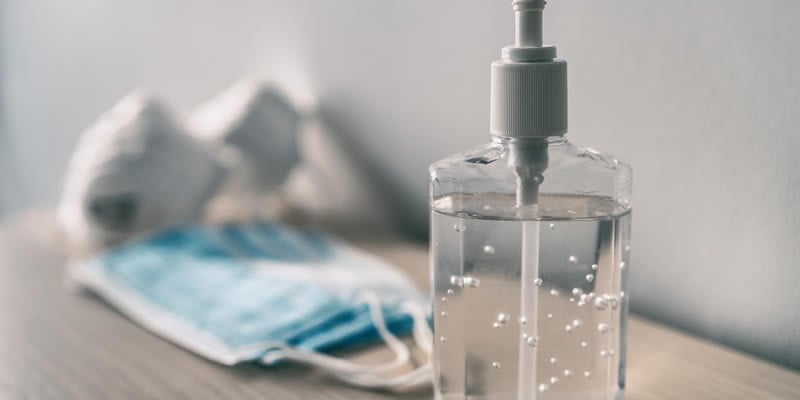The ‘too clean for our own good’ theory, which argues that children’s immune systems are hampered by modern society being too clean, has been debunked in a new study.
The ‘hygiene hypothesis’ used in medicine states that exposing children to certain microorganisms at a young age helps to protect them against allergic diseases as it contributes to the development of their immune system.
- Study finds past COVID-19 infection provides some immunity from reinfection
- Top doctor warns of deadly immune reaction that occurs after main COVID-19 condition
However, the public narrative often suggests that 21st century society has become too clean and hygienic, meaning that young children have become less resistant to allergies because they have been exposed to less germs.
Now researchers from UCL and the London School of Hygiene & Tropical Medicine have confirmed that the ‘hygiene hypothesis’ is not entirely true and have concluded we are not “too clean for our own good”.
Lead author, Emeritus Professor of Medical Microbiology, Graham Rook said: “Exposure to microorganisms in early life is essential for the ‘education’ of the immune and metabolic systems.
“Organisms that populate our guts, skin and airways also play an important role in maintaining our health right into old age so throughout life we need exposure to these beneficial microorganisms, derived mostly from our mothers, other family members and the natural environment.”
“But for more than 20 years there has been a public narrative that hand and domestic hygiene practices, that are essential for stopping exposure to disease-causing pathogens, are also blocking exposure to the beneficial organisms.
“In this paper, we set out to reconcile the apparent conflict between the need for cleaning and hygiene to keep us free of pathogens, and the need for microbial inputs to populate our guts and set up our immune and metabolic systems.”
The findings show that germs located in an average house are not required for immunity and that vaccinations are more beneficial for toughening immune systems.
Additionally, the results reveal that hygienic settings are key for maintaining good health and that allergies caused by cleaning are more likely to be from the products instead of the elimination of the environment’s organisms.
“Cleaning the home is good, and personal cleanliness is good, but, as explained in some detail in the paper, to prevent spread of infection it needs to be targeted to hands and surfaces most often involved in infection transmission,” said Professor Rook.
He added: “By targeting our cleaning practices, we also limit direct exposure of children to cleaning agents.
“Exposure to our mothers, family members, the natural environment, and vaccines can provide all the microbial inputs that we need.
“These exposures are not in conflict with intelligently targeted hygiene or cleaning.”
The full research report can now be accessed in the Journal of Allergy and Clinical Immunology.




